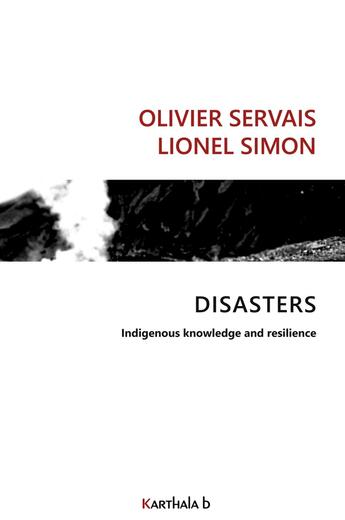Résumé:
By bringing together contributions from several disciplines, this book promotes a comparative perspective and a collaborative approach to disasters in Southeast Asia. Hazards affect all aspects of human life, having impacts on the environmental, social, economic, political and biological... Voir plus
By bringing together contributions from several disciplines, this book promotes a comparative perspective and a collaborative approach to disasters in Southeast Asia. Hazards affect all aspects of human life, having impacts on the environmental, social, economic, political and biological systems. In order to better understand the effects produced by these disastrous events - including the mechanisms of resilience - it is necessary to understand in depth the issues involved.
They are embedded in multiple dimensions - affective, psychosocial, cultural, architectural...
Disasters pose the challenge of questioning the consequences and determining factors that contribute to their occurrence, but also to their experience. Through the multiple perspectives it offers, this book aims to lead to a better problematisation of the notions of risk, resilience and adaptation.
Olivier Servais (PhD, 2003) is a historian and anthropologist. He is full professor at the University of Louvain in Belgium. He teaches the anthropology of symbolic systems and their relationship to the so-called «natural» or «artificial» environment. He has conducted fieldwork and documentary research in Canada, the Philippines, Mauritius, France, Belgium and in digital worlds. In his current research, he studies the imaginaries of virtual worlds, online et off line sociability, including rituals, resistance and resilience through or to digital, and the organization of groups at the margins, including indigenous people.
Lionel Simon (PhD, 2017) is an anthropologist. He is a postdoctoral researcher and lecturer at the University of Louvain in Belgium. His work focuses on ontologies, local knowledge and human-environment relations. He has been conducting research with the Wayuu of Colombia (Guajira Peninsula, since 2006) and the Mentawai of Indonesia (Siberut Island, since 2017).
Donner votre avis









